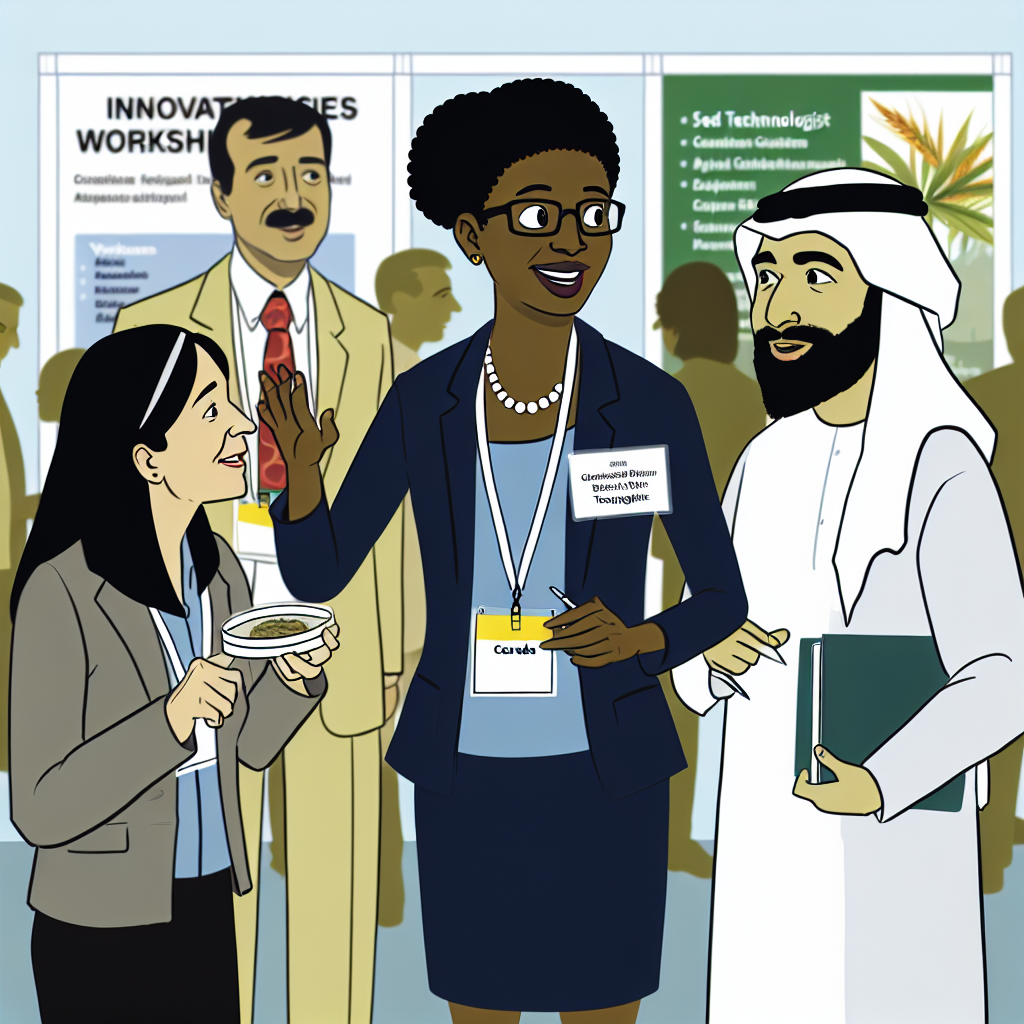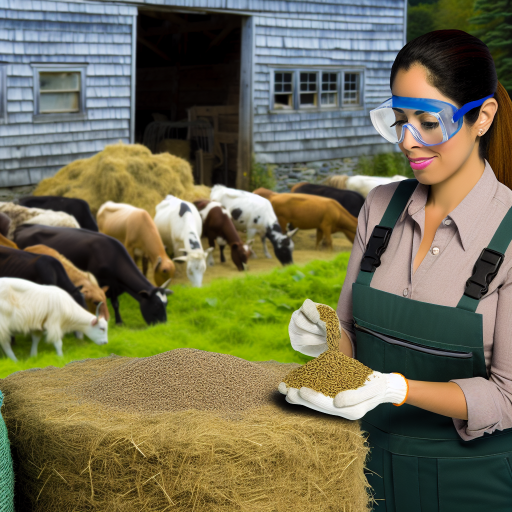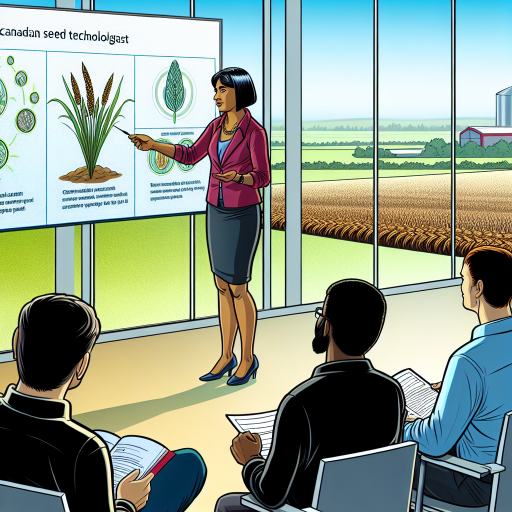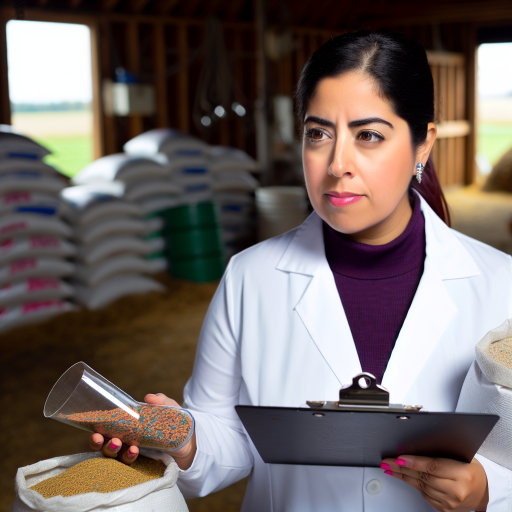Understanding the Role of Seed Technologists in Canada
Overview of Seed Technologists
Seed technologists play a critical role in agriculture.
They focus on the quality and viability of seeds.
Their work ensures that farmers receive optimal seed products.
In Canada, seed technologists are essential for crop production.
They contribute to sustainable agricultural practices.
Moreover, they work closely with farmers and agronomists.
Key Responsibilities
Seed technologists perform several key tasks.
They conduct seed tests to determine quality.
This includes examining germination rates and purity levels.
Additionally, they follow regulatory standards in testing procedures.
Seed technologists also develop best practices for seed handling.
Furthermore, they provide advice on seed selection to farmers.
Educational Background
Typically, seed technologists have a background in agronomy or plant science.
Many complete relevant degree programs at Canadian universities.
Moreover, they often pursue additional certifications.
These certifications enhance their knowledge of seed technologies.
Continuing education is essential in this ever-evolving field.
Networking and Professional Development
Networking is crucial for seed technologists in Canada.
They benefit from connecting with peers and industry experts.
Professional organizations frequently host events and workshops.
These gatherings facilitate knowledge exchange and collaboration.
Seed technologists can also join online forums and social media groups.
This enhances their visibility within the agricultural community.
Importance of Networking in the Agricultural Sector
Networking is essential for growth in the agricultural sector.
It fosters collaboration among seed technologists across Canada.
Unlock Your Career Potential
Visualize a clear path to success with our tailored Career Consulting service. Personalized insights in just 1-3 days.
Get StartedStrong networks provide opportunities for knowledge sharing.
Furthermore, they promote innovation and improve practices.
Building Professional Relationships
Building strong professional relationships is key to success.
Trust and mutual respect enhance collaboration among peers.
These relationships often lead to partnerships on projects.
For instance, collaboration can improve seed research efforts.
Access to Resources and Information
Networking grants access to vital resources and information.
Seed technologists can share best practices through connections.
They can also exchange insights on market trends and challenges.
Such exchanges can help professionals stay competitive and informed.
Career Advancement Opportunities
Networking opens doors for career advancement.
Connections can lead to job openings in the industry.
Mentorships often develop from professional relationships.
Experienced professionals may provide guidance on career growth.
Participation in Industry Events
Participation in industry events boosts networking efforts.
Conferences and workshops offer platforms for seed technologists.
These events facilitate interactions with industry leaders.
Additionally, they promote the exchange of innovative ideas.
Gaining Insights from Peers
Networking allows for the exchange of insights among peers.
Sharing experiences can reveal valuable lessons and strategies.
Collaborating on challenges helps identify effective solutions.
Moreover, it promotes a sense of community within the sector.
Key Industry Events and Conferences for Networking
Overview of Major Conferences
Attending conferences provides valuable networking opportunities.
These events gather seed technologists and industry leaders.
Building relationships at these gatherings fosters collaboration.
Canadian Seed Growers’ Association Conference
This conference is a significant event in the seed industry.
It attracts professionals from across Canada.
Participants discuss new technologies and practices.
Networking sessions facilitate meaningful connections.
Attendees gain insights from speakers and panels.
Seed Innovation Expo
The Seed Innovation Expo focuses on innovative developments.
It features exhibitors showcasing the latest advancements.
Workshops are available to enhance practical skills.
This expo encourages knowledge exchange among attendees.
Networking events are organized to connect professionals.
Canadian Agriculture and Agri-Food Tech Conference
This conference highlights trends in agriculture technology.
It includes discussions on sustainable seed production.
Participants can learn about the latest research findings.
Networking opportunities are integral to the event.
Relationships formed here can lead to potential collaborations.
Local and Regional Seed Events
Many local organizations host smaller seed-related events.
These gatherings allow for intimate networking experiences.
Meetings often focus on regional seed challenges.
Attending these events helps build community ties.
Local networks can provide invaluable support.
Online Webinars and Virtual Events
In recent years, virtual events have gained popularity.
Webinars allow global participation from seed experts.
These platforms eliminate geographical barriers.
Networking can still occur through online interactions.
Engagement in virtual forums encourages knowledge sharing.
Discover More: Common Seed Diseases and How Technologists Address Them
Leveraging Social Media Platforms for Professional Connections
Identifying the Right Platforms
Begin by identifying social media platforms relevant to seed technology.
Twitter is especially useful for real-time updates and networking.
LinkedIn allows for professional interactions and showcasing expertise.
Additionally, Facebook groups can connect technologists with shared interests.
Building an Engaging Profile
Focus on creating a professional profile on platforms like LinkedIn.
Include an engaging summary detailing your experience and skills.
Utilize a professional photo to enhance credibility.
Also, regularly update your profile to reflect new achievements.
Participating in Online Communities
Join relevant online communities that focus on seed technology.
Participate actively by asking questions and sharing insights.
Engagement boosts visibility within these communities.
Moreover, consider contributing to discussions to establish yourself as a thought leader.
Networking and Collaboration
Use social media to reach out to other professionals in the field.
Send personalized connection requests to potential collaborators.
Attend virtual networking events advertised on social platforms.
Follow thought leaders to stay updated on industry trends.
Sharing Knowledge and Insights
Share relevant articles and insights on your social media profiles.
This practice positions you as an informed professional in seed technology.
Engage with posts from others to foster relationships.
Furthermore, consider writing your own articles to showcase expertise.
Leveraging Hashtags and Trends
Utilize popular hashtags to increase post visibility.
Engage in trending discussions to connect with a broader audience.
Following industry-related hashtags can also open new networking opportunities.
Moreover, participate in webinars and use related hashtags to gain exposure.
Gain More Insights: Tools and Equipment Used by Seed Technologists
Building Relationships with Seed Companies and Research Institutions
Identifying Key Players
Start by identifying major seed companies in Canada.
Companies like Canterra Seeds and Secan are pivotal.
Research institutions such as Agriculture and Agri-Food Canada lead in innovation.
Establishing connections with these entities is crucial.
Attending Industry Events
Participate in conferences focused on agricultural technology.
Events like the Canadian Seed Trade Association’s conference are valuable.
Networking at these events can yield fruitful relationships.
Be proactive in introducing yourself to industry professionals.
Utilizing Online Platforms
Leverage platforms like LinkedIn to connect with seed technologists.
Join groups dedicated to seed technology and agriculture.
Engage in discussions and share relevant content.
This will elevate your visibility within the field.
Building Collaborative Research Projects
Approach research institutions for potential collaborations.
Propose projects that align with mutual interests.
Collaborative efforts can lead to groundbreaking advancements.
Such partnerships also enhance your professional network.
Joining Professional Organizations
Become a member of organizations like the Canadian Seed Growers’ Association.
These groups offer resources and networking opportunities.
Engagement in these organizations can elevate your career.
Attend workshops and seminars to enhance your knowledge.
Gain More Insights: The Role of Soil Scientists in Canada’s Sustainable Agriculture Movement

Participating in Local Agricultural Associations and Clubs
Benefits of Membership
Joining local agricultural associations offers numerous advantages.
First, members gain access to valuable resources and information.
Additionally, these organizations foster networking among industry professionals.
Members also benefit from workshops and educational events.
Furthermore, active participation can lead to potential collaborations.
Finding the Right Association
Numerous agricultural associations exist across Canada.
Each focuses on different aspects of the agricultural industry.
Research local associations to find the right fit for you.
Consider the specific services and events they offer.
For instance, some may emphasize sustainable practices.
Engagement Opportunities
Local associations often host various events throughout the year.
These may include field days, trade shows, or networking events.
Participation in these activities enhances your professional visibility.
Moreover, volunteering for committees can increase your involvement.
Attend events regularly to build and strengthen your network.
Examples of Active Associations
- The Canadian Seed Growers’ Association promotes seed quality.
- The Alberta Grain Growers Association advocates for farmer interests.
- The Ontario Federation of Agriculture provides grassroots support.
Each of these organizations plays a pivotal role in their region.
Engaging with such groups can lead to opportunity and advancement.
Connecting with Peers
Networking with peers is essential for professional growth.
Consider reaching out to fellow members through online forums.
Additionally, social media groups can enhance your connectivity.
Attend a mix of in-person and virtual meetings for broader reach.
Building relationships with industry leaders can provide mentorship.
See Related Content: How AgriTech is Revolutionizing Farming Careers in Canada
Utilizing Online Networking Platforms and Websites
Exploring Professional Networks
Professional networking sites enhance connections among seed technologists in Canada.
LinkedIn serves as a vital platform for building industry relationships.
Users can showcase skills and experience to attract potential collaborators.
Joining relevant groups on LinkedIn can facilitate meaningful discussions.
Engaging with fellow members increases visibility within the field.
Participating in Online Forums
Online forums provide valuable spaces for seed technologists to communicate.
Platforms like Reddit’s r/SeedScience enable sharing of insights and advice.
Contributing to discussions helps in building a reputable online presence.
Moreover, users can ask targeted questions to gain expertise from others.
Attending Virtual Conferences and Webinars
Virtual conferences offer opportunities for learning and networking.
Seed industry events often feature prominent speakers and panels.
Participating in Q&A sessions can lead to direct interactions with experts.
Furthermore, networking lounges provide informal settings for conversations.
Engaging with Social Media
Social media platforms such as Twitter foster real-time conversations.
Seed technologists can follow industry leaders and organizations for updates.
Hashtags related to seed technology can help find relevant discussions.
Sharing relevant content increases engagement and visibility within the community.
Utilizing Job Boards and Career Portals
Job boards specifically focused on agricultural fields connect professionals.
Websites like AgCareers facilitate networking and job searching simultaneously.
Users can post resumes and showcase their expertise to potential employers.
Additionally, they can gain insights into emerging industry trends and demands.
Collaborating with Universities and Educational Institutions
Building Strong Partnerships
Seed technologists benefit from strong partnerships with universities.
These collaborations often lead to groundbreaking research projects.
Joint ventures can provide access to specialized facilities and resources.
Moreover, universities often seek industry partners for practical insights.
Participating in Research Initiatives
Engaging in research initiatives enhances the skill set of seed technologists.
Technologists can work on innovative projects that address real-world challenges.
Such collaborations may focus on developing new seed varieties.
Additionally, they often contribute to sustainability efforts in agriculture.
Internship and Co-op Programs
Internship programs offer a valuable avenue for networking.
These programs allow students to gain hands-on experience in the field.
Companies can benefit from fresh perspectives brought by interns.
Meanwhile, students establish connections that may lead to future employment.
Attending Educational Workshops and Conferences
Workshops and conferences provide an excellent platform for networking.
Technologists can learn about cutting-edge developments in seed technology.
These events foster discussions between industry professionals and academics.
Furthermore, conferences often highlight successful case studies and innovations.
Engaging in Community Research Projects
Community research initiatives can be quite impactful.
They offer opportunities to work collaboratively on local agricultural issues.
Technologists may gain valuable insights from community engagement.
Furthermore, community projects enhance the visibility of seed technologies.
Utilizing Online Platforms for Connection
Online platforms provide an alternative networking method for technologists.
Social media and professional networks allow for extensive outreach.
Joining relevant groups can lead to valuable resource sharing.
Moreover, online discussions can spark innovative ideas and collaborations.




